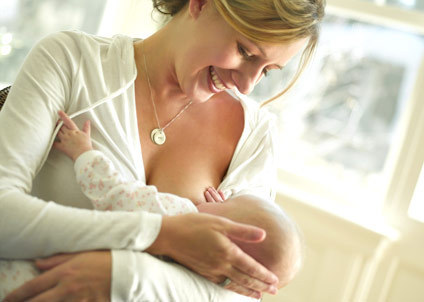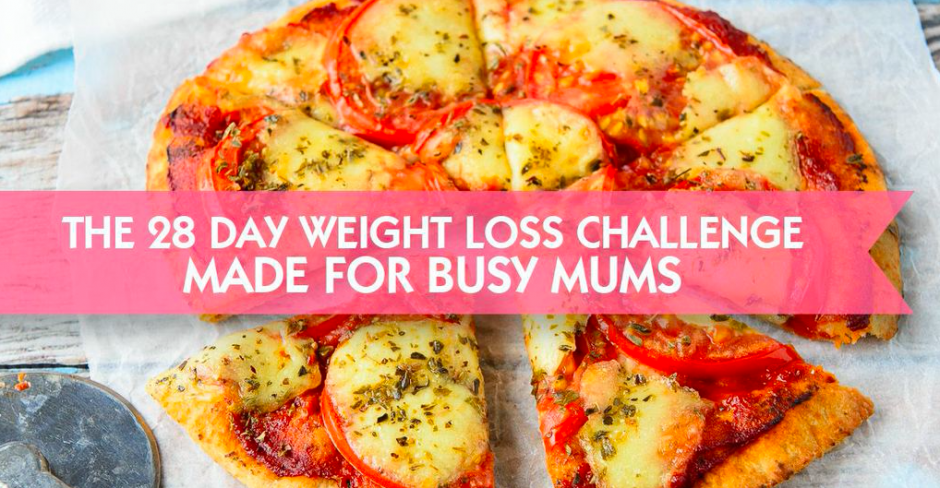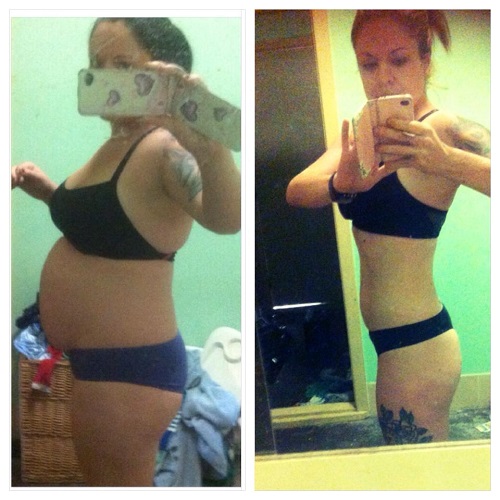A good breastfeeding diet is important for both mum and baby. It is crucial for mums to intake the right food and nutrition, and to find out what food to avoid when breastfeeding so that their baby has the best nutrition possible, and ensure that milk supply is strong.

- Iodine – seafood, seaweed, iodized salt, eggs
- Iron – lean red meats, seafood, beans, leafy greens, tofu and green vegetables
- Calcium – Almonds, leafy greens, dairy, sardines, salmon, green peas, baked beans, oranges and tofu (with calcium an issue is absorption and we need vitamin D to absorb it properly so try and get 10-15 minutes of sunshine each day to give you your daily vitamin D dose)
Breastfeeding mums also should be careful about supplements that aid weight loss as some contain products that can make your baby sick when passed through the milk.
Ones to be aware of are phentermine, aloe vera, caffeine, kelp, high doses of chromium and phenylpropanolamine (an ingredient in dexatrim and acutrim). Also, many weight loss supplements also contain ephedrine which is a substance that increases metabolic rate and has been associated with severe increase in blood pressure, palpitations, heart arrhythmias, and seizures – so steer clear of these when breastfeeding. The smoothie mix on the Lose Baby Weight plan do not contain any of these products and has been created in conjunction with leading specialists to ensure it is safe in breastfeeding
Specific foods which may cause problems when breastfeeding
There are no hard and fast rules about what a mum shouldn’t eat when breastfeeding – other than certain supplements mentioned above and alcohol. However there are certain foods which have been shown to cause upset in the baby – whether that be sickness, eczema, colic, trouble sleeping and irritability. However, each baby is different and you should monitor yours to see how he reacts to certain foods and contact your Doctor if you are concerned about any reaction– below is a list of common foods listed by mums and Doctors as more likely to cause some kind of reaction with your baby:
- Milk, dairy, broccoli, cauliflower, cabbage and spicy foods have been linked to colic
- Too much caffeine may make your baby restless
- Eggs and peanuts have been shown to be linked to allergies in babies
More than anything it is important to eat a balanced diet when breast feeding and if you are trying to lose your baby weight, do so in a safe way and aim for approximately 500g-1kg per week.
Sensitive Babies
Some babies have allergies, colic or digestive issues and can react to an array of different foods. If your baby is particularly sensitive we advise discussing a food plan with your Doctor and sticking to a plain diet with low taste foods to avoid any reaction
Milk Supply & Breastfeeding
When it comes to your milk supply, it’s not so much weight loss that’s the issue, more so the way you choose to lose weight. Dramatically reducing calories, restricting certain food groups or engaging in high intensity exercise can all play a role in reducing your supply. On the other hand, undertaking a healthy eating plan that focuses on providing your body (and baby) with all the nutrients you need, may actually help support your supply, especially if you’ve struggled to eat properly in the past.
Ensuring that you’re including regular, nutritious meals that contain adequate amounts of protein, carbs and healthy fats in your diet is essential for both your milk supply and own health. A healthy baby needs a healthy mum so taking care of your own health is absolutely vital, especially when breastfeeding.
A healthy and varied diet can help support a healthy supply as well as give you lots of energy, but what about foods and herbs that are reported to give a visible boost to your milk levels? These menu items, commonly referred to as lactogenic foods or herbs, are said to help increase your milk production, boosting your supply temporarily. It is often thought that by boosting your supply, your baby will eat more, which will then encourage your breasts to continue to produce a higher level of milk.
The scientific community errs on the side of caution when commenting on the actual evidential proof that certain foods or herbs can increase milk production, but the anecdotal evidence from other mums often hints strongly at the success of food and/or herbs in boosting their supply. Provided you don’t have any allergies to these foods or herbs, or go overboard, there’s no reason why you can’t include them in your diet if you are concerned about your supply.
The most commonly recommended lactogenic foods and herbs are:
- Oats
- Carrots and spinach
- Legumes like chickpeas and lentils
- Brown rice
- Apricots
- Salmon
- Brewers yeast
- Ground linseed or LSA mix
- Fenugreek tea or tablets

For more information about our products, please view our weight loss plans or to read more about breast feeding , see our Breastfeeding Information page. You may also like to visit our Breastfeeding Q&A page for further answers to your questions
Healthy weight loss in breastfeeding
Have you heard about our 28 Day Weight Loss Challenge?
The Challenge is safe for breastfeeding mums and gives you access to:
- 28 Days of family friendly healthy meals
- Personalised weekly shopping lists and customisable meal plans
- Access to the exclusive challenge 1000+ recipe hub
- 28 days of effective at home exercises to fit into your busy day
- Expert advice and support from the team and 1000’s of other mums on the challenge
See all the details and join here
Results from mums on the 28 Day Challenge
Mums lose an average of 4-6kg (8-13 pounds) on our 28 Day Challenge and below are some of the amazing results from mums JUST LIKE YOU who are already using the 28 Day Challenge and losing tummy fat – make the change and join them today too!
You can see lots of more results and you can join here too
Ash Loses 26kgs (57 pounds) on 7 Challenges
Ash says: “The 28 Day Challenges have changed my life. This was never a diet but a complete lifestyle change for me, and I committed to it 100% I’ve never experienced such a positive experience as I have with this plan IT WORKS. It’s perfectly put together for mums and so manageable.”
Take control of your health and get rid of those unwanted kgs for good.
Join now
You won’t regret it!
*This material is for information only and not intended to replace the advice of a medical professional. Please consult with your Doctor before starting any weight loss program and do not begin any exercise routine unless you have your Doctor’s clearance.
We also recommend talking to your Doctor if your baby suffers from Colic before starting any diet plan as certain foods may exacerbate the colic if you are breastfeeding.
And when introducing any new food into your diet, we advise being alert to any food sensitivity in your baby such as a change in bowel movements and discontinuing any new diet plan if any food sensitivity occurs.
The owners of Lose Baby Weight shall have no no liability or responsibility to any person or entity with respect to any loss or damage caused, or alleged to be caused, directly or indirectly by the information contained herein




